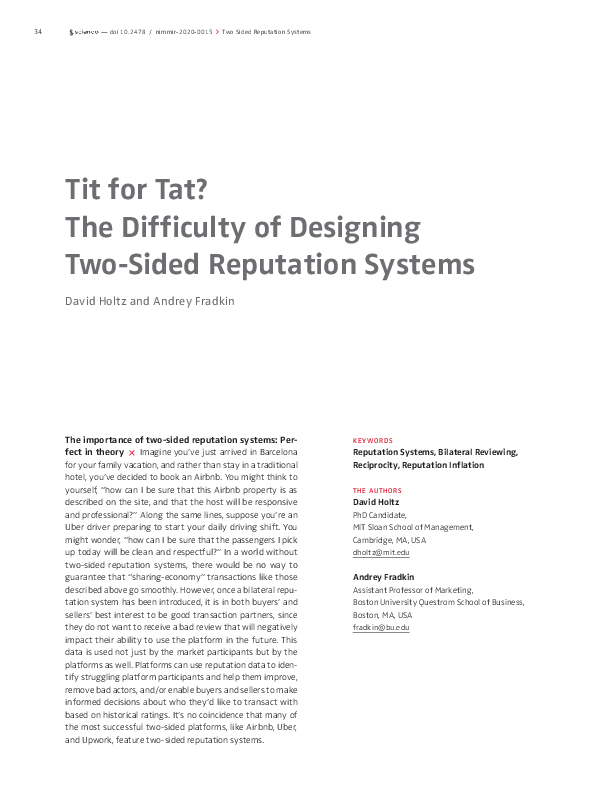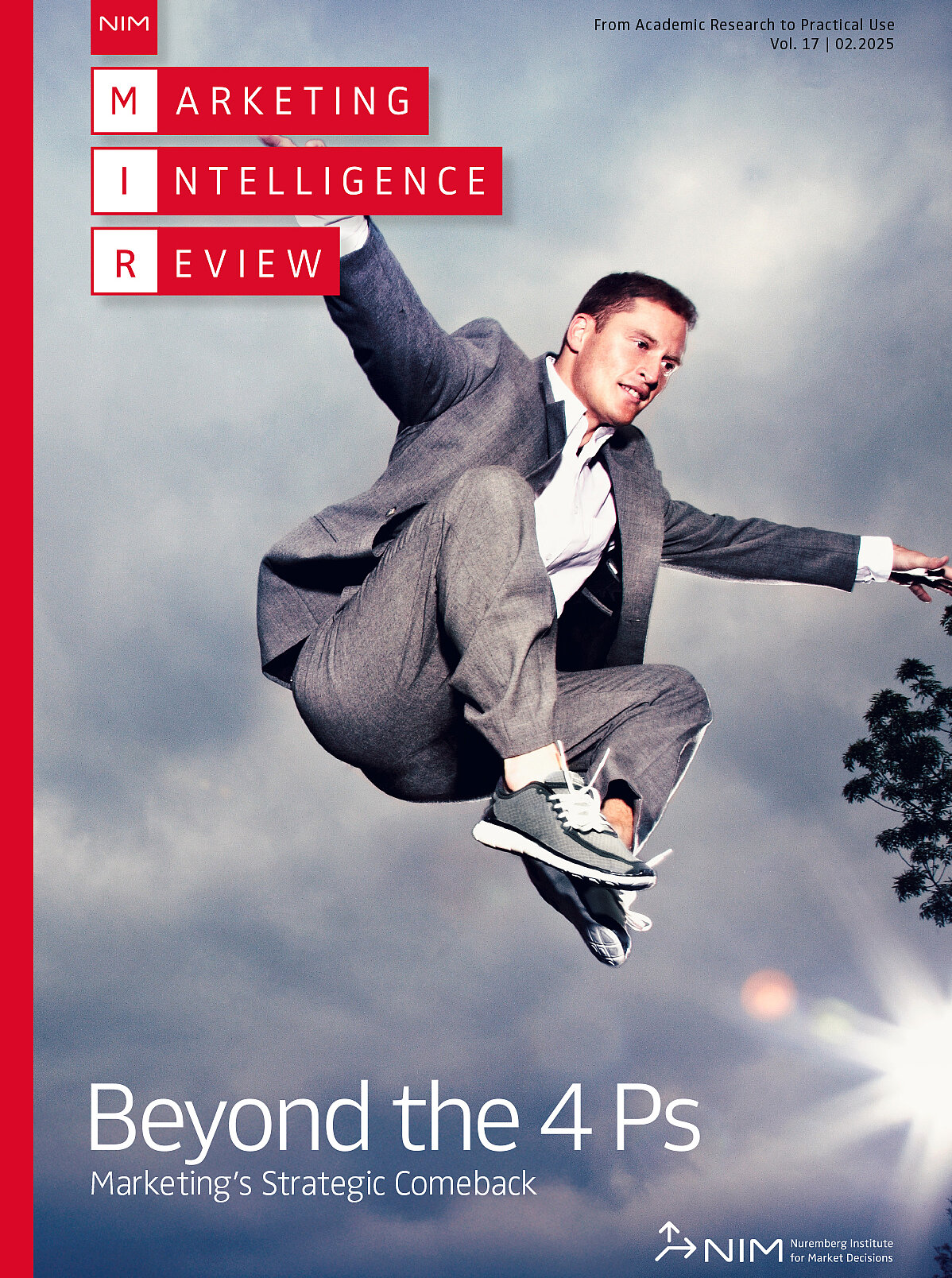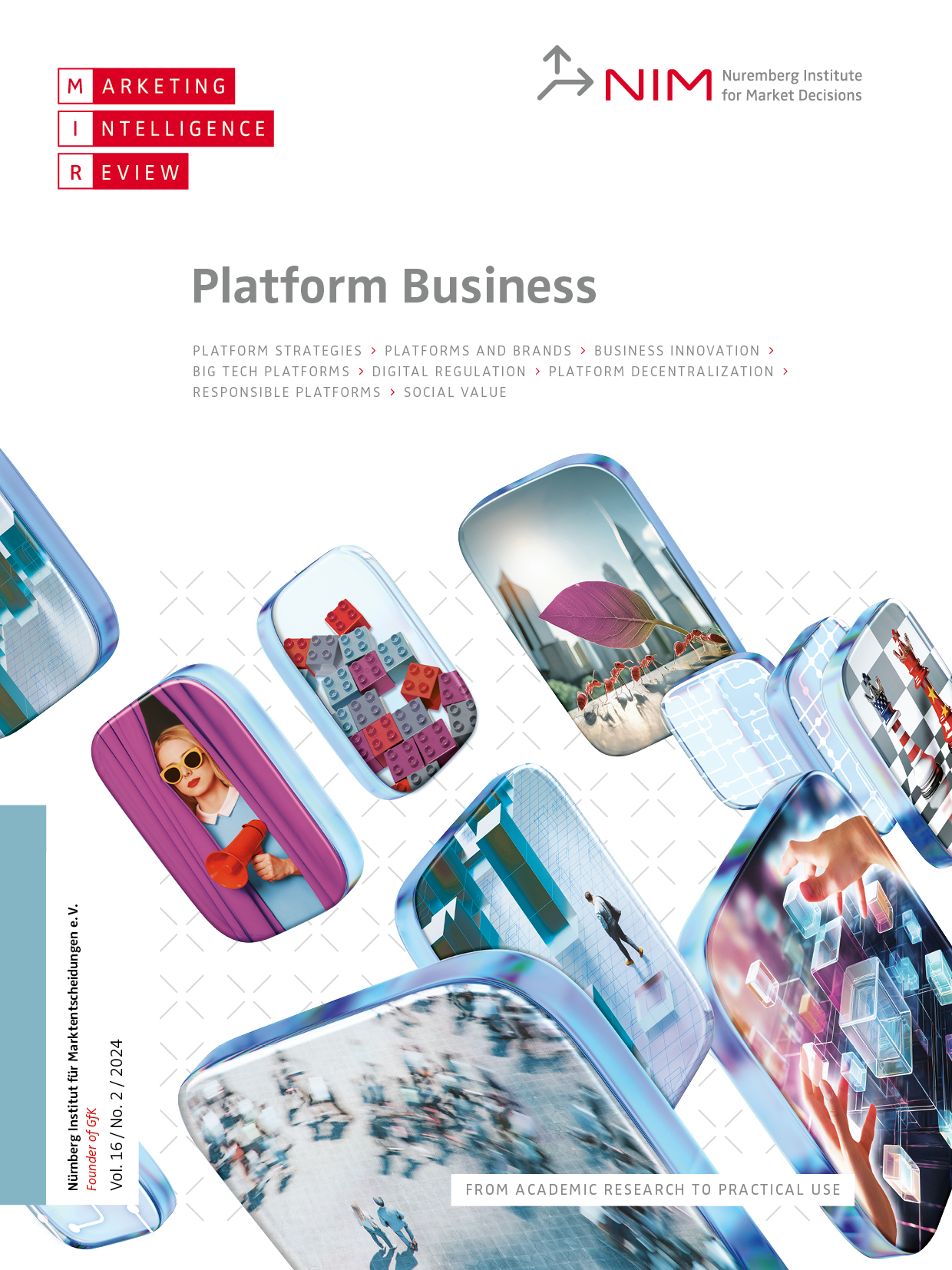Tit for Tat? The Difficulty of Designing Two-Sided Reputation Systems
David Holtz and Andrey Fradkin
In a two-sided reputation system, it is in the interest of both buyers and sellers to be a good transaction partner. What sounds wonderful in theory is unfortunately not so easy to implement in reality. Reputation systems can have flaws due to factors such as reciprocity and retaliation, selective reviewing, and reputation inflation. These flaws cause the ratings collected on the platform to diverge from the actual experiences that marketplace participants are having. When reputation systems are not thoughtfully designed, it can be hard to distinguish between the “high quality” and “low quality” interactions. This makes it difficult to identify and remove bad actors and increases the chances of a “bad match”. Innovations in reputation system design, such as simultaneous reveal of information, review incentives, and greater reliance on private feedback, are making it easier to implement two-sided systems while avoiding the common pitfalls.

![[Translate to English:] [Translate to English:]](/fileadmin/_processed_/f/f/csm_Die__ce4685c4af.png)
![[Translate to English:] [Translate to English:]](/fileadmin/_processed_/4/f/csm_2020_nim_mir_reputation_economy_de_1d05d01c86.png)
![[Translate to English:] [Translate to English:]](/fileadmin/_processed_/9/8/csm_moehlmann_teubner_vol_12_no_2_de_103b934fb3.png)
![[Translate to English:] [Translate to English:]](/fileadmin/_processed_/2/2/csm_2020_nim_mir_reputation_economy_de2_cd855b528f.png)

![[Translate to English:] [Translate to English:]](/fileadmin/_processed_/c/a/csm_2020_nim_mir_reputation_economy_de4_9623b8eef0.png)
![[Translate to English:] [Translate to English:]](/fileadmin/_processed_/8/1/csm_MIR_Reputation_Economy_Interview_d8998007d0.png)
![[Translate to English:] [Translate to English:]](/fileadmin/_processed_/a/c/csm_2020_nim_mir_reputation_economy_de5_579f022f5b.png)


